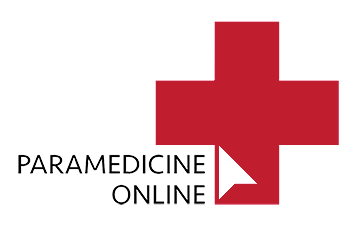Paramedicine Online FAQs – Your Guide to Paramedical & Medic Training
Welcome to the Paramedicine Online FAQ page
Thinking about a career in pre-hospital emergency healthcare? Here’s everything you need to know about studying with Paramedicine Online, becoming a paramedic or private sector medic, and getting started in the emergency healthcare industry.
1. How Do I Become a Paramedic in Australia?
To practise as a registered Paramedic, you must complete a Bachelor of Paramedic Science and be registered with the Paramedicine Board of Australia via AHPRA.
For those aiming to enter the private healthcare sector or who want a faster pathway into emergency care, you can study nationally recognised vocational training packages, including:
- HLT51020 – Diploma of Emergency Health Care (18–24 months)
- HLT41120 – Certificate IV in Health Care (12–18 months)
These courses allow you to work as a Basic or Advanced Life Support Medic, gain practical skills, and start building your healthcare career before university.
2. How Do I Enrol?
- Submit an application via our website.
- Attend a phone interview to assess your readiness and career fit.
- If successful, complete formal enrolment and begin your studies.
3. Are Paramedicine Online Courses University Level?
No. Paramedicine Online courses are Vocational Education and Training (VET) programs designed to give you work-ready skills in pre-hospital emergency healthcare. They prepare students for private sector employment and are flexible, with online study and hands-on workshops.
4. Do You Accept International Students?
No, international students cannot enrol.
5. What If I Have Prior Training or Experience?
We recognises previous learning through:
- Credit Transfer (CT) – for courses you’ve already completed.
- Recognition of Prior Learning (RPL) – assesses skills, knowledge, and life experience relevant to paramedicine.
Both options save time by allowing you to skip units you’ve already mastered.
6. How Much Do the Courses Cost?
Fees vary depending on prior qualifications. We offer flexible payment plans so you can start your studies without financial stress.
7. Can High School Students Begin Training?
Yes! Students 16+ years old can start training part-time while still in school. Early training helps build practical experience and prepares you for university or private sector roles.
8. Which Subjects Should I Take Before Studying?
Our courses have no prerequisites, but students should have a reasonable level of English, literacy, numeracy, and computer skills.
9. What Is the HLT41020 – Certificate IV in Health Care?
- Duration: 12–18 months
- Study: ~10 hours/week online + 5-day clinical workshop
- Outcome: Entry-level pre-hospital emergency healthcare skills for private sector work.
10. Where Are Clinical Workshops and Intakes?
- Workshops are located in QLD, NSW, VIC, and WA
- New Zealand students travel to Australia for 2x 5-day workshops
- Student-tutor ratios are maintained to ensure maximum hands-on learning.
11. Does My Location Matter?
No. Most of our courses are online, so you can study from anywhere in Australia or New Zealand. Clinical workshops are the only in-person component.
12. Do I Need an ATAR or NCEA?
No. Our courses do not require an ATAR/NCEA. Diplomas like HLT51020 may also be used as a pathway to university if you plan to become a registered Paramedic.
13. Am I Too Old to Study?
We welcome students of all ages. Whether you’re a high school student or a mature-aged learner, it’s never too late to start a career in healthcare.
14. Can I Work While Studying?
Yes! Our courses are flexible, allowing you to balance full-time work with online study and practical workshops.
15. Will I Get Practical Experience?
Yes. Clinical Workshops and Clinical Placement provide hands-on experience under the supervision of Paramedics, Nurses, or EMTs. These experiences often lead to employment opportunities with our industry partners.
16. Are these Courses Nationally Recognised?
Yes. All our courses are nationally recognised in Australia (RTO #32513, ASQA approved).
17. Career Pathways After Graduation
Graduates can pursue roles such as:
- Patient Transport Officer (PTO)
- Event Medic
- Private Sector Life Support Medic
- Pathway to becoming a State Ambulance Paramedic via university
18. Can I Go to University After a Diploma?
Yes. Many universities offer VET pathways, allowing credit transfers from the HLT51020 Diploma to a Bachelor of Paramedic Science. This reduces study time and costs while giving you practical industry experience.
19. What Job Opportunities Exist?
Depending on your course and location, graduates can work in:
- Private and public healthcare
- Emergency and non-emergency patient transport
- Event medical services
- Mining and industrial first response
- Offshore and onshore oil & gas medical roles
Ready to Start Your Career?
Contact one of our friendly Course Advisors today to discuss your pathway, study options, and enrolment process.
Call: AU +61 1300 377 741 | NZ 0800 005 689
Locations: Gold Coast, Hurstville (NSW), Noble Park North (VIC), North Lake (WA)

